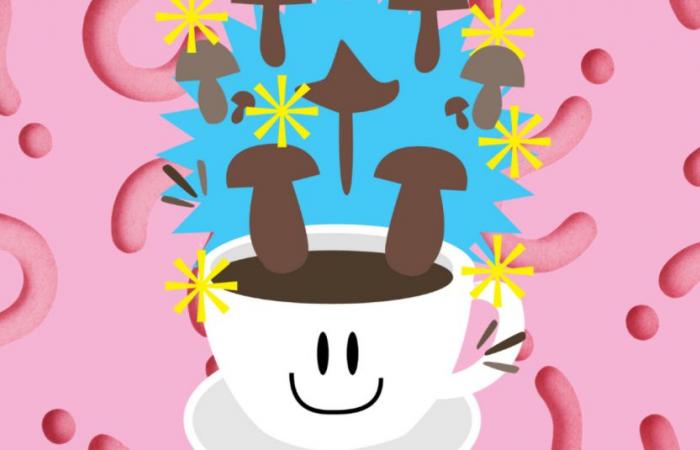An ally of foggy mornings, coffee is highlighted for its deleterious effects on mood, digestion and even headaches. This is why in recent years, alternatives promising all its advantages without the disadvantages have multiplied. Too good to be true?
In the mouth, the taste is deliciously regressive. This is because Bonjour, “the 100% natural plant-based alternative to coffee”, is prepared with roasted barley and cocoa. Hence the return to childhood with each sip, even if the star ingredient of this beverage which ensures awakening without shocking the system, are the adaptogenic mushrooms. Which are also found in the composition of most competing alternatives, from Ten to Sunday Natural via Upraising, whose graphic packaging contains different mixtures of mushrooms depending on whether you opt for the version which “boosts energy and productivity » or that supposed to improve concentration and memory. So adaptogens are the secret to enjoying all the benefits of coffee without suffering from sour stomach, headaches or even nervousness?
Not so fast, says Namur-based nutritionist and nutritherapist Marjorie Van Robays. Who confides that coffee is a subject discussed with 90% of her patients, “all addicted”, and who points out its inconveniences, to which she adds its diuretic effect, likely to lead to dehydration and elimination of certain essential minerals and vitamins. However, it also highlights its benefits, between the provision of antioxidants, reduction of the risk of Parkinson’s and stimulating effect. Which can therefore also come from adaptogens, “consumed for centuries as part of Chinese medicine and able to influence the endocrine and nervous systems to optimize the response to stress”. This would result in more constant energy “without the energy fluctuations typical of caffeine,” explains the Namuroise.
“So although mushroom-based coffee alternatives don’t contain caffeine, they offer a similar boost by improving cognitive function, physical performance, and helping the body better manage stress,” says our expert. Who qualifies, however, recalling that “these mushrooms are not without risks, especially if they are consumed in large quantities or in combination with certain medications”. Thus, according to her, reishi can interact with anticoagulants or immunosuppressive drugs, while maitake can have an influence on diabetes medications. “Some people may also have allergies to these mushrooms, resulting in skin or digestive reactions,” she adds.
Conclusion
“Adapogenic mushrooms offer a multitude of health benefits, from immune support to improved cognitive function and stress management. Due to the absence of caffeine, adaptogenic mushrooms do not have diuretic effects, thus avoiding the appearance of deficiencies. In addition, caffeine-free alternatives avoid the risk of dependence and therefore withdrawal symptoms. But it is essential to choose quality products, understand possible interactions with other treatments, and consult a healthcare professional before incorporating these mushrooms into a diet, especially if you have pre-existing medical conditions.






